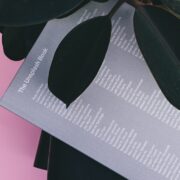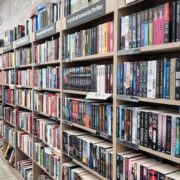Interview with R.J. Daniel Hanna, Award-Winning Writer-Director-Editor
R.J. Daniel Hanna is a multifaceted talent in the film industry, known for his work as a writer, director, and editor. In this interview, he shares insights into his journey, the importance of editing in filmmaking, and how practical experience shapes a filmmaker’s career.
Did you always plan to be an editor in addition to writing and directing?
When I started out, I did everything, like everyone does when you’re making short films. At USC, even though everyone was early in their careers, I quickly noticed some people were so focused on cinematography and were much more knowledgeable about it. For me, I wasn’t as interested in the set life aspect; I was always about storytelling. So, I gravitated more towards editing.
What role did editing play during your education at film school?
They encouraged everyone to do something practical that you could be hired for, whether it’s editing, cinematography, or sound. I really enjoy editing. I feel like that’s where you make the movie a movie. It transforms from just footage or a script into a finished product, and I love figuring out how it all fits together.
How did the editing process work on your films?
I worked with a great editor, Evan Schroedic. He usually does the full rough cut, and I provide notes. Sometimes I would suggest focusing on making the ending more emotional without specifying how. There are times when I would do my pass on certain scenes, especially if they were shot in a complicated way. It’s a very collaborative process, and I find it rewarding.
Can you explain how you approach the editing process?
The first step is watching the footage to identify the moments that feel alive. It’s crucial to protect those moments because editing changes how they feel compared to the other shots. I prioritize what’s most important and allow myself to explore different avenues during the process, even if it doesn’t lead anywhere. A lot of editing is addition by subtraction; it’s about removing what doesn’t work to elevate the film.
How does your career as an editor enhance your skills as a writer and director?
Editing has given me a lot of perspective. When I’m directing, I’m looking for the same moments that I look for when editing. It’s all about identifying those interesting turns and feelings. Being on set is like watching it happen live, and it’s essential to know when we’ve captured those moments. I can manage inconsistencies and ensure everything feels cohesive, even when we have a lot of improvisation.
Do most people at film school aim to make their own projects?
Yes, most people are thinking about that. By the end of school, some may decide they are more interested in editing or sound rather than writing or directing. Others may want to keep working on their original projects.
Do graduates typically find jobs in the film industry?
Many do find work in the industry, though some might feel that the lifestyle isn’t for them. It’s a challenging and sometimes unpredictable life, but those who stick it out usually find opportunities. Some work at post houses or freelance, and while things have slowed down recently, many of my peers are still working.
Can you share more about the collaborative nature of editing?
If you have a trusted editor, they bring a fresh perspective. They help create pacing, flow, and emotion, highlighting the best moments of the film. Sometimes, we have to forget about the script and focus on the footage we have. The editor’s job is to recognize the strengths of the movie and help direct the focus where it’s most compelling.
What advice do you have for filmmakers about the editing process?
Don’t be afraid to cut out anything that doesn’t work. You can elevate a film significantly just by removing the ineffective elements. It’s often the quickest way to improve a movie. Trust your instincts and try different approaches without overthinking.
How does the editing process differ from writing and directing?
Editing is where you really see how all the pieces come together. It’s a different phase of creativity. While writing is about constructing the narrative and directing is about capturing it, editing is about refining and enhancing what you’ve got. It’s a balance of letting go of certain expectations and focusing on what’s best for the film.
What’s next for you in your filmmaking journey?
I hope to continue telling cinematic, character-driven stories. I have projects lined up, including my recent feature “Hard Miles,” which has received positive attention and will be released across many screens.
FAQ
1. How can aspiring filmmakers gain practical experience?
Getting involved in local film projects, internships, and collaborating with peers can provide valuable hands-on experience.
2. What should filmmakers prioritize when starting out?
Focus on storytelling and understanding the various aspects of filmmaking, including editing, to enhance your overall skill set.
3. How important is networking in the film industry?
Networking is crucial; the relationships you build can lead to opportunities and collaborations down the line.
4. What are some common mistakes filmmakers make in post-production?
One common mistake is being overly attached to initial ideas or footage that doesn’t serve the story. It’s important to remain flexible and willing to cut what doesn’t work.
5. How can editors and directors work effectively together?
Communication and trust are key. Directors should be open to the editor’s perspective, while editors should respect the director’s vision for the film.
Connect with R.J. Daniel Hanna
To learn more about R.J. Daniel Hanna and his work, visit his website at R. J. Daniel Hanna or follow him on Instagram and x.com.
For more information about “Hard Miles,” check out hardmiles_movie | Instagram | Linktree.









